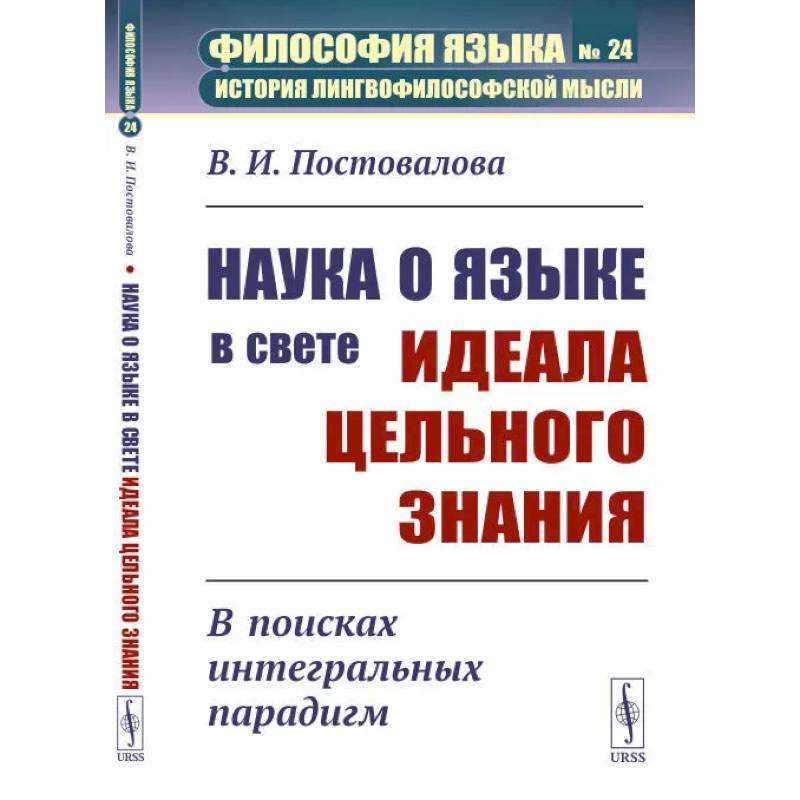The science of language in the light of the ideal of holistic knowledge. In search of integral paradigms
Please sign in so that we can notify you about a reply
This book combines the studies of the author of different years, in which an attempt is made to consider the science of language through the interpretation prism of the ideal of whole (unified, universal) knowledge, in the context of the metamoteling of integrative processes in modern culture and the development of integral paradigms in humanitarian knowledge.
Three parts are contained in the work. The first part gives an epistemological characteristic of the ideal of whole knowledge and a reconstruction of the theo enthuscosmic paradigm of the study of the language developed within the framework of the whole knowledge program in the Russian school of unity (P.A. Florensky, S.N. Bulgakov, A.F. Losev) is carried out. The second part of the book is devoted to the understanding of the ideal of whole knowledge in the work of A.F. Loseva, who embodied the basic attitudes of this program in its most radical form. The third part analyzes the ways and principles of constructing integrated paradigms in modern linguistics on the material of the formation of new synthetic disciplines in modern humanitarian knowledge - theolinguistics and theoretology aimed at studying the relationship between language and religion from the standpoint of the ideal of solid knowledge.
For linguists, philologists, culturalists, specialists in the field of philosophical anthropology and the methodology of scientific knowledge
Three parts are contained in the work. The first part gives an epistemological characteristic of the ideal of whole knowledge and a reconstruction of the theo enthuscosmic paradigm of the study of the language developed within the framework of the whole knowledge program in the Russian school of unity (P.A. Florensky, S.N. Bulgakov, A.F. Losev) is carried out. The second part of the book is devoted to the understanding of the ideal of whole knowledge in the work of A.F. Loseva, who embodied the basic attitudes of this program in its most radical form. The third part analyzes the ways and principles of constructing integrated paradigms in modern linguistics on the material of the formation of new synthetic disciplines in modern humanitarian knowledge - theolinguistics and theoretology aimed at studying the relationship between language and religion from the standpoint of the ideal of solid knowledge.
For linguists, philologists, culturalists, specialists in the field of philosophical anthropology and the methodology of scientific knowledge
Author:
Author:Постовалова Валентина Ильинична
Cover:
Cover:Hard
Category:
- Category:Arts & Photography
- Category:Culture
- Category:Reference books
Publication language:
Publication Language:Russian
Paper:
Paper:Offset
Age restrictions:
Age restrictions:16+
ISBN:
ISBN:978-5-9519-3188-7
No reviews found
